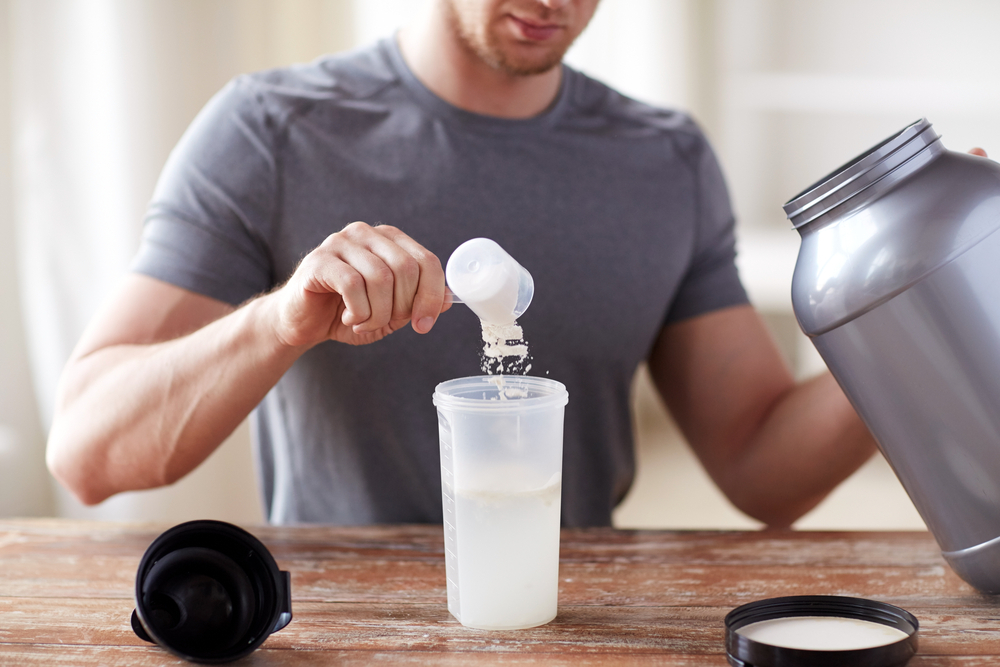It is very difficult to make a difference to your body by working out alone. Instead, you must also change your diet and stick to a plan when it comes to meal preparation. Consistency is key when it comes to building muscle and you must eat at regular times and hit the gym a few times a week.
Not only can your diet change your body’s physicality, but it can change how your body responds to activity. Some foods will feel heavy in your stomach and not digest properly which will affect your performance in the gym. So, what must you remember when it comes to diet planning?
Diet Essentials
When it comes to maximizing your productivity in the gym, there will be a handful of essentials that you will need to add to your shopping list each time. You will need to consistently purchase the following:
Protein: eggs, white fish, white meat, Greek yogurt, and protein powder. These powders can be purchased from multiple specialist retailers such as The Supps House.
Starches: tortillas, cereal, bread, whole-wheat pasta, oats, potatoes, yams, quinoa, and brown rice.
Fruit and Vegetables: beans, green vegetables, berries, and tropical fruit.
Oils: seeds, nuts, coconut oil, and olive oil.
SEE MORE: Things you’re not doing at the gym, but should be!
Five Rules of Bodybuilding Nutrition
When it comes to fuelling your body for a workout, there are five key rules, these are: grazing throughout the day, limiting processed food, staying hydrated, strategizing your carbohydrate intake, and eating lean protein.
Firstly, when building muscle, you do not want to rely on three large meals daily. Instead, you should eat multiple small meals and healthy snacks throughout the day. This allows you to consistently fuel your body and maintain your blood sugar levels.
Secondly, processed foods do not contain ample nutrients and are also extremely calorie-dense. Additionally, their high salt and sugar content means that your body is prone to craving them. If you limit your intake of such, your body will slowly adjust and no longer crave these foods. This will also result in you feeling better and healthier.
Thirdly, hydration is key. You should drink six to eight glasses of water a day on average and potentially more if you are exercising that day. If you want an alternative to water, you should drink calorie-free beverages.
Penultimately, you must monitor your carbohydrate intake. Carbs come in two forms: starchy, fast-action carbs and non-starchy carbs. Starchy carbs include pasta, bread, and rice; these raise the blood sugar quickly. Non-starchy carbs include fruit, vegetables, and grains; these are high in fiber and gradually raise blood sugar. Non-starchy carbs should be the mainstay of your diet, whereas starchy carbs should only be consumed before or after a workout when you need to quickly replenish your blood sugar.
Finally, you need to eat lots of lean protein. Eating protein every few hours allows your body to stimulate the release of fat-burning hormones whilst maximizing muscle growth. When it comes to bodybuilding, protein intake should be your number one priority. Your protein intake goals for each day can be achieved through the help of protein powders but they should not be a replacement for protein-rich foods.
Basic Meal Template
Each day, you should aim to eat around 2,500 calories, 218 grams of protein, 218 grams of carbohydrates, and 83 grams of fat. This is based on a man weighing around 70 kilograms, but it can be adjusted to suit your size.
Meal One: Breakfast with starchy carbs
Meal Two: A low carb snack
Meal Three: A low carb lunch
Meal Four: A post-workout snack or shake with starchy carbs
Meal Five: Dinner with starchy carbs
Persevere through this and you will be sure to see positive results.

